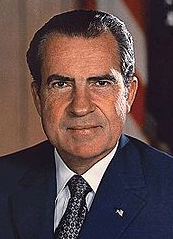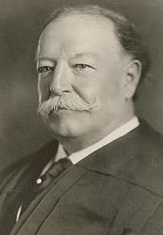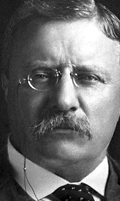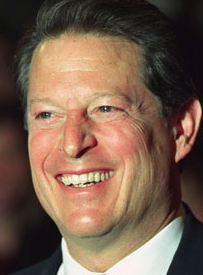If you asked the average U.S. citizen to name ten presidents many might not be able to do it, so asking them to name ten presidential runners-up would be an even more difficult question. However, while people may not remember the losers of presidential elections very well, many of them played an important part in our national history in one way or another. The men who made this list are here because either their loss was historically significant or something about the time and place of their bids for the Oval Office is worth remembering. People may not remember losers but that does notmean they should be forgotten.
10: Thomas Jefferson

Thomas Jefferson lost his first attempt to win the White House running against John Adams but won his second bid and went on to become one of the more important presidents in U.S. history. Jefferson shows up on this list not because of anything unusual or historical about his loss but more because of what he went on to accomplish after losing his first attempt at the Oval Office.
9: Alf Landon

Alf Landon has the unfortunate distinction of having suffered the single most lop sided defeat in the history of the U.S. presidential election ever. Landon was the Republican Party’s nominee in the 1936 presidential election and his opponent was none other than Franklin Roosevelt. Aside from suffering such a lopsided defeat, what makes Alf Landon an interesting runner-up is the fact that he appears to have made no real effort to win the White House. Landon didn’t make a single campaign journey in the first two months of his selection by the Republican Party, and even then he traveled infrequently. While there is little doubt that he would have lost regardless of how much he campaigned, his actions make you wonder if he even really wanted to win in the first place.
8: Ralph Nader

Technically not a runner-up since he finished third in the popular vote and didn’t win a single electoral vote in the 2000 presidential election, Ralph Nader is on this list because of the effect he had. The 2000 presidential race was one of the closest in our history and Nader is widely considered to have been the reason Al Gore lost. The Green Party is largely populated by liberal voters and some of those voters who would have otherwise voted for Gore voted for Nader instead.These votes for Nader caused Gore to lose the vote in several key states and this of course led to the debacle in Florida.
7: John Quincy Adams

Most people know that John Quincy Adams was the sixth president of the United States, but what is less well known is that he bears the distinction of being the only presidential candidate of a major party to win only a single electoral vote. Adams ran against the wildly popular James Monroe and really never had a chance to begin with. Not only were the people of the U.S. avid supporters of Monroe, but the political establishment of the time was also firmly in Monroe’s corner. John Quincy Adams was more fortunate when he ran for election in 1824 becoming our nation’s seventh president.
6: George B. McClellan

George B. McClellan was the opponent of Abraham Lincoln in the 1864 election and as expected lost. What makes McClellan’s bid for the white house worth noting is that it not only happened while the civil war was still in full swing, but that he ran against Lincoln because McClellan believed his opponent was the reason for his tarnished reputation as a general.
5: John Adams

John Adams was not only the second president of the United States but also the first man to be the presidential runner up. Adams ran against George Washington twice losing both times until finally succeeding in winning the presidency which he then lost to Thomas Jefferson in the next election. Adams ran with no party affiliation his first time and the second he was the choice of the Federalist Party. What actually makes John Adams run interesting is that while he came nowhere close to winning the election, he did manage to stage a competitive campaign against a very popular candidate.
4: Richard Nixon

Richard Nixon will always be remembered for the Watergate scandal and this is a good thing. He is the perfect example of why we need to be careful in who we choose as president. However, Nixon is not on this list because of his presidency, he is here because of his loss to John Kennedy in the 1960 presidential election. The reason the 1960 election is such an important election has nothing to do with either candidate as much as it has to do with television. Kennedy was the first president to use television advertising so extensively in a presidential campaign and it is this use of TV that helped win him the election. He looked better on TV than Nixon, sounded better on TV than Nixon, and inspired people with his charisma and charm. Since the 1960 presidential campaign television has become a vital part of the election process.
3: William Howard Taft

William Taft was the vice president during Theodore Roosevelt’s term in office and later won the presidency when Roosevelt chose not to run for re-election. When Taft ran for re-election in he was opposed by Roosevelt who felt that Taft had mismanaged the presidency and wanted back in the Oval Office. The reason Taft is on this list is because you cannot talk about the 1912 election without him. While he did play a part in the results of that election, the next man on the list is worth more discussion.
2: Theodore Roosevelt

Arguably one of the greatest presidents in U.S. history, Theodore Roosevelt was a force long before he became president and not surprisingly was one after he chose not to run for re-election. Roosevelt had hand selected his vice president William Taft to take over the presidency and expected Taft to continue doing things the way Roosevelt wanted them done. Taft however, proved to be troublesome while he was in the White House and so Roosevelt sought re-election. The problem with Roosevelt doing this was that by default the republican party was going to back Taft thus forcing Roosevelt to form the Bull Moose party (also known as the progressive party). During the campaign Roosevelt and Taft went after each other so venomously that both men lost a great deal of public support and Woodrow Wilson (a very good president in his own right) handily won the election.
1: Al Gore

Al Gore is not here because he should have won or because he shouldn’t have won. The reason Al Gore tops this list is that the 2000 presidential campaign revealed to every American the inherent problems with our political system. Our election process is designed to select a clear cut winner but it fails when there are close elections and this was revealed during the debacle in Florida. The world watched as our political system was gridlocked by claims of voter fraud, unfair voting practices and more. In the end George Bush was declared the winner but the legacy of that election will always be the knowledge that our system is not perfect and that something needs to be done to fix it.